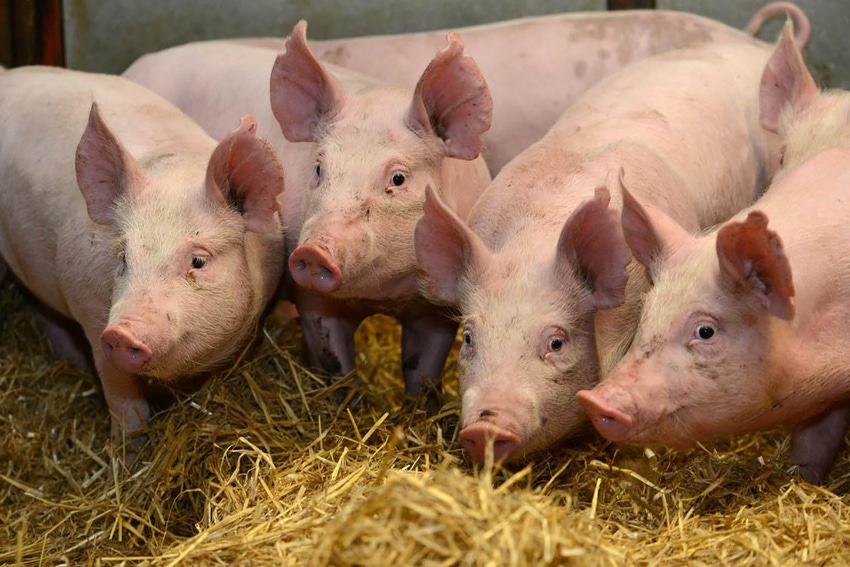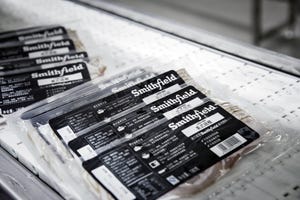The Roslin Institute team is carrying out the work, in collaboration with an industry partner, to generate a laboratory model of pig muscle.
October 16, 2019

Research at the Roslin Institute is focusing on identifying genes linked with fat production and muscular development in pigs, with a view to producing leaner animals or more meat from fewer animals.
The team aims to grow cells that can be used to produce muscle and fat in the laboratory to help identify specific variants of genes in pigs that are linked with generating leaner or fatter meat. Eventually, the researchers say this would create the potential for such genes to be bred out, leading to leaner pigs which produce more meat.
Thousands of genes are potentially involved in the production of fat and muscle, which means it is difficult to carry out this research with cells taken from live pigs. The team is instead carrying out work, in collaboration with an industry partner, to generate a laboratory model of pig muscle.
Their partner, Stemnovate, will provide expertise in stem cells and 3D tissue engineering. The company was funded by Innovate UK in support of advancing organs on silicon chip systems, which seek to simulate artificial organs for study in the lab.
“Instead of periodically having to obtain muscle tissue from pigs, we want to be able to grow stem cells for long periods in culture, and use them whenever we need to produce muscle in the lab,” says Xavier Donadeu, group leader at the Roslin Institute.
“It will be an exciting project — the ability to grow muscle cells in the lab and engineer for production is highly valuable for the potential industrial applications,” says Ruchi Sharma, CEO, Stemnovate
The project has recruited a PhD student who will work in the Roslin Institute and undertake a three-month work placement with Stemnovate in Cambridge. The studentship is funded by the East of Scotland Bioscience doctoral training partnership, supported by the Biotechnology and Biological Sciences Research Council.
Source: Roslin Institute, which is solely responsible for the information provided, and wholly owns the information. Informa Business Media and all its subsidiaries are not responsible for any of the content contained in this information asset.
You May Also Like


